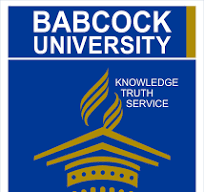Lexical Innovation: An Analysis of Onomastics in Nigerian Political Discourse
DOI:
https://doi.org/10.5281/zenodo.14283721Keywords:
Onomastics, political discourse, lexical innovation, Nigerian politicsAbstract
In Nigeria, political communication is enriched by a unique vocabulary used as names to set the stage for political engagements. This research investigates certain lexical innovations adopted by politicians during electioneering campaigns. It also identifies and discusses distinct political onomastics used by four prominent Nigerian politicians: Atiku Abubakar, Bola Ahmed Tinubu, Peter Obi, and Rabiu Kwankwaso. The study employs Pavol Stekauer's (1998) Onomasiological theory to analyze the data and discuss word formation processes prevalent in political gatherings. The analysis revolves around two main perspectives: the standpoint of politicians who devise special names to showcase their influence and power, and the perspective of the public who create names associated with power to align themselves with political figures and signify their support for them. The findings reveal that politicians use certain coined heroic names and flamboyant terms for self-identification, party affiliation, and to influence their audience. It is also revealed that party supporters, on their part, call prolific names to be identified with political actors and to indicate their support for them. Therefore, this study concludes that during political activities in Nigeria, the communication that exists between politicians and the electorate is characterized by distinct linguistic elements used to persuade, criticize, draw attention, and promote their chosen party ideologies. The study suggests further research on the pragmatic effects of political onomastics on voters.
Downloads
Published
How to Cite
Issue
Section
License
Copyright (c) 2024 Beyond Babel: BU Journal of Language, Literature, and Humanities

This work is licensed under a Creative Commons Attribution 4.0 International License.




